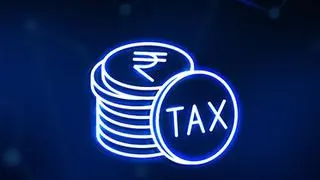My father-in-law P V Krishan (late) and my wife Premaramani are joint SB and FD A/c holders with a leading private sector bank in Besant Nagar since 2003/04. The mode of operation was either/survivor. P.V. Krishnan passed away in Chennai on 16.12.2017.
Similarly, Kamala Krishnan (late) and Premaramani were having both FD and SB accounts with the same bank in Besant Nagar. Kamala Krishnan passed away on 18.02.2018 in Chennai. We handed over the copies of death certificate of P V Krishnan and Kamala Krishnan to the bank branch in Besant Nagar in the month of March 2018 with a request to delete the names. Both were senior citizens. They were submitting Form 15H every year, i.e. up to 31.03.2018. The branch deducted TDS of both deceased for the year 01.04.2018-31.03.2019. Both the savings bank and FD were in the either or survivor mode. For the FY (01.04.2019-31.03.2020), the branch made PAN correction and TDS amount of Kamala Krishnan (late) was added to Premaramani. She filed IT return in October 2020 and claimed refund from Income Tax.
Premaramani is a homemaker and she doesn't have any income other than interest on FDs.
In view of the above, we request you to offer your guidance on claiming the TDS.
Ramani N.V.
In order to claim credit of taxes deducted at source (‘TDS’) and any consequential tax refund, one needs to file the income tax return in specified tax return forms for that year by offering the income in their hands and claiming the credit of corresponding TDS. Thus, to claim the refund of TDS deducted by bank on interest earned from fixed deposit, Premaramani would be required to file her income tax return, offering income in her hands, including interest incomes of both P V Krishan (Late) and Kamala Krishnan (Late). Further, I understand that Premaramani’s only source of income is the said interest from savings bank account and fixed deposits. Considering the nature of income and subject to fulfilment of other conditions, she can file her return in Form ITR – 1 for FY 2020-21 (extended due date being September 30, 2021 for non-tax audit cases). TDS, as deducted by bank, would be required to be reported in the TDS schedule of the ITR form.
Separately, if the estimated total income of Premaramani, after including the interest income stated above, is expected to be below the taxable threshold (i.e. ₹2.5 lakh / ₹3 lakh in case of a senior citizen), she may also consider filing a declaration in Form 15G or Form 15H (for a senior citizen), with the payor bank for non-deduction of TDS on the interest paid. For this purpose, a senior citizen means a person who has attended the age of 60 years, anytime during the previous year.
In relation to FY 2018-19, if the tax return was not filed by Premaramani and tax refund (if any) was not claimed earlier, due dates for filing a late return has elapsed (extended due date to file a late return was November 30, 2020). However, in such a case, you may approach the Central Board of Direct Taxes (CBDT) under provisions of section 119(2)(b) of the Income-tax Act, 1961 (‘the Act’), requesting for specific permission for filing of belated tax return. If such permission is granted, return can then be filed to claim the refund.
The writer is a practising chartered accountant
Send your queries to taxtalk@thehindu.co.in








Comments
Comments have to be in English, and in full sentences. They cannot be abusive or personal. Please abide by our community guidelines for posting your comments.
We have migrated to a new commenting platform. If you are already a registered user of TheHindu Businessline and logged in, you may continue to engage with our articles. If you do not have an account please register and login to post comments. Users can access their older comments by logging into their accounts on Vuukle.